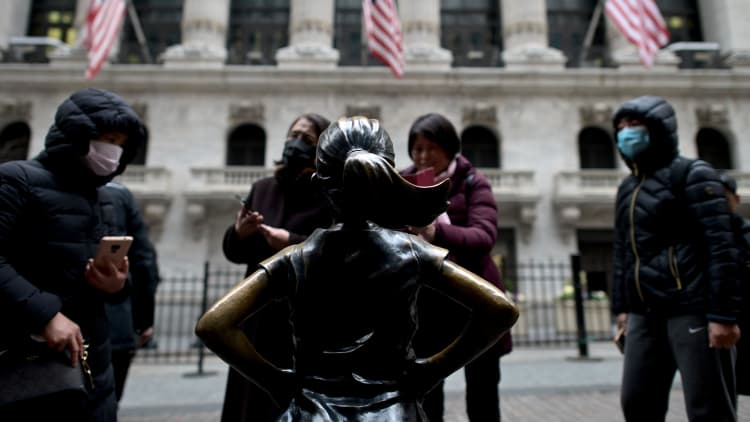Best Buy CEO Corie Barry said the company's seen a dip in available inventory for some items as the coronavirus disrupts its supply chain, but she said its merchants are well prepared — especially after dealing with uncertainty around tariffs.
"We're leveraging many of the same techniques we did as we were working through the tariffs on the appropriate sourcing and the inventory availability," she said in a Thursday call with CNBC.
She did not specify which items have been lower in inventory and a company spokesman declined to share details, citing competitive reasons.
The electronics retailer on its separate Thursday earnings call fielded numerous questions from analysts about the impact of the coronavirus outbreak. The retailer's fiscal fourth-quarter results beat analysts' expectations, after strong sales of headphones, mobile phones, tablets and other items over the holidays, and growth in its tech support business.
Best Buy factored supply chain disruption into its fiscal first-quarter and full-year guidance. The company said it expected most of the coronavirus's effect to be concentrated in the first half of the year.
In the call with CNBC, Barry said the company's merchants are in close touch with vendors and she said, "literally, hour by hour, we continue to assess the situation."
She said very few of its Chinese vendors "are at full, complete capacity." She said different vendors have different problems, which is "what makes this so difficult for us to size at this point."
"Some vendors are absolutely telling us they're struggling to staff or they're purposefully staffing light still so that they can rotate employees in," Barry said. "In some cases, we're hearing from vendors that while they don't have finished goods in Asia, they're waiting on component parts and pieces, and so they're not seeing those yet. In some instances, they're looking across the globe and trying to understand where they have safety stock or where they might be over-inventoried, so they can divert some of that inventory back into the U.S."
And, she added, "everyone is starting to think through what might be the transportation needs" once factories and freight are fully operational again.
Barry said last year that Best Buy planned to decrease the percentage of its goods coming from China. On the company's late-August earnings call, she said about 60% of its total cost of goods sold came from China. She said she expected that to drop to about 40% this fiscal year.
Barry said Thursday that the coronavirus outbreak underscored why that's a smart move.
"It's just one more piece of evidence that will continue to put pressure on diversifying supply chains across the globe," she said.
Best Buy did not factor the potential of coronavirus cases in the U.S. in its guidance. Barry said it's "very difficult to estimate what the impact could be if it spreads to the U.S." and how that could change customers' shopping habits.
But she said the retailer has at least one advantage with online sales.
"Having a strong digital experience, no matter what, that ties to the stores would be very helpful," she said.
If customers decided to ship purchases to their homes instead of going to the store, Barry said "we can make that happen."



